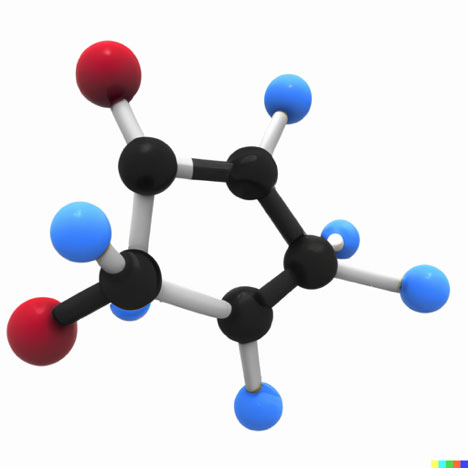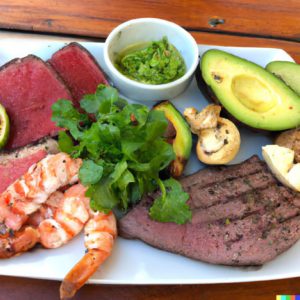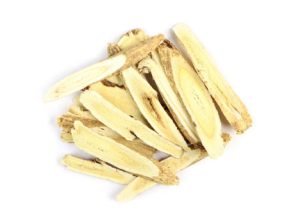Nutraceuticals for Mental Clarity
L-theanine is an amino acid found naturally in tea leaves, particularly green tea. It has been studied for its potential benefits in enhancing mental function, reducing stress and anxiety, and improving sleep quality.
L-Theanine
L-theanine is an amino acid found naturally in tea leaves, particularly green tea. It has been studied for its potential benefits in enhancing mental function, reducing stress and anxiety, and improving sleep quality.

Another study published in the journal “Psychopharmacology” found that L-theanine improved attention and reaction time in a group of young adults prone to anxiety.
Additionally, a systematic review and meta-analysis of 11 randomized controlled trials, published in the journal “Nutrients,” found that L-theanine reduced symptoms of stress and anxiety in people with high levels of stress, with the effects being most pronounced in those who had higher levels of anxiety at the start of the study.
The available evidence suggests that L-Theanine may be a useful supplement for improving cognitive performance and reducing stress and anxiety.
L-theanine is most commonly consumed as a dietary supplement, either alone or in combination with other supplements or ingredients. It is available in various forms, including capsules, tablets, and powders, and is typically taken orally.
The typical recommended dosage of L-theanine is around 100-200 mg per day, although dosages can vary depending on the individual and the specific reason for use. Some studies have used higher doses of up to 400 mg per day, but it’s important to consult with a healthcare professional before taking L-theanine or any other supplement at higher doses.
L-theanine can be taken with or without food and is generally considered safe for most people when taken at recommended doses. However, as with any supplement or medication, it’s important to follow the recommended dosage and to talk to a healthcare professional before taking L-theanine, particularly if you are pregnant, breastfeeding, or taking any other medications or supplements.
L-Carnitine
Fat can be burned for fuel. But only if L-carnitine carries it into the furnace!
L-carnitine is a naturally occurring amino acid that is involved in energy metabolism. It plays a key role in transporting fatty acids into the mitochondria of cells, where they can be used to produce energy.
Here are some of the top food sources of L-carnitine:

-
- Red meat: Beef and lamb are particularly rich in L-carnitine, with a 3-ounce serving of beef containing around 81 mg of L-carnitine and a 3-ounce serving of lamb containing around 27 mg.
- Pork: Pork is also a good source of L-carnitine, with a 3-ounce serving containing around 24 mg.
- Poultry: Chicken and turkey are good sources of L-carnitine, with a 3-ounce serving of chicken breast containing around 3-5 mg of L-carnitine and a 3-ounce serving of turkey breast containing around 5-6 mg.
- Fish: Fish is a good source of L-carnitine, with a 3-ounce serving of cod containing around 4-7 mg of L-carnitine, and a 3-ounce serving of salmon containing around 4-5 mg.
- Avocado: Avocado is a good source of L-carnitine, with one avocado containing around 2 mg.
- Wheat berries: Wheat berries are a good source of L-carnitine, with a 1-cup serving containing around 0.2 mg.
Several human studies have investigated the effects of L-carnitine on mental function. A randomized, double-blind, placebo-controlled study published in the journal “Nutritional Neuroscience” found that L-carnitine improved cognitive function, particularly in the areas of attention and memory, in healthy older adults.
Another study published in the journal “Annals of General Psychiatry” found that L-carnitine supplementation reduced symptoms of depression in people with major depressive disorder.
Additionally, a systematic review and meta-analysis of 21 randomized controlled trials, published in the journal “Nutrients,” found that L-carnitine supplementation improved cognitive function in people with cognitive impairment or dementia.
Overall, the available evidence suggests that L-carnitine may be a useful supplement for improving cognitive performance and reducing symptoms of depression.
L-carnitine is commonly consumed as a dietary supplement, and is available in capsules and powders. The typical recommended dosage of L-carnitine is 500-2000 mg per day. It is generally considered safe for most people when taken at recommended doses, but it’s important to talk to a healthcare professional before taking L-carnitine or any other supplement, particularly if you are pregnant, breastfeeding, or taking any other medications or supplements.
Astragalus
You’ve seen tongue depressors at the doctor’s office, right? That’s almost exactly what sliced astragalus root looks like. It has a mild, sweet flavor and has safely been used for millennia.
Astragalus is a plant commonly used in traditional Chinese medicine for its potential health benefits. It has been studied for its potential to improve mental function, boost the immune system, and reduce inflammation.
Several human studies have investigated the effects of astragalus on mental function. A randomized, double-blind, placebo-controlled study published in the journal “Evidence-Based Complementary and Alternative Medicine” found that astragalus improved cognitive function, particularly in the areas of memory and attention, in healthy older adults.
Another study published in the journal “Pharmacology Biochemistry and Behavior” found that astragalus supplementation improved learning and memory in rats.

Additionally, a systematic review and meta-analysis of 21 randomized controlled trials, published in the journal “Phytomedicine,” found that astragalus supplementation improved cognitive function in people with cognitive impairment or dementia.
The available evidence suggests that astragalus can be useful for improving cognitive performance.
Astragalus is commonly consumed as a dietary supplement, and is available in various forms including sliced root, capsules, tablets, and powders. The typical recommended dosage of astragalus varies depending on the specific reason for use, but is usually between 500-3000 mg per day. It is generally considered safe for most people when taken at recommended doses, but it’s important to talk to a healthcare professional before taking astragalus or any other supplement, particularly if you are pregnant, breastfeeding, or taking any other medications or supplements.